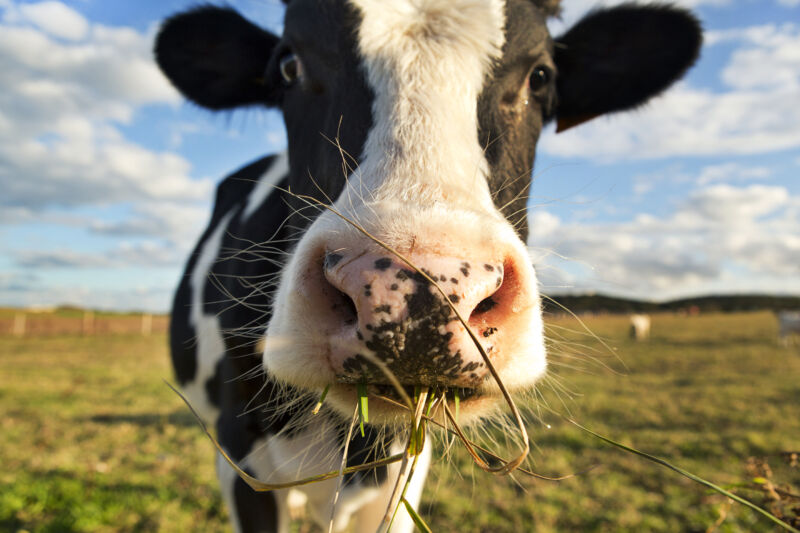Cleaning up cow burps to combat global warming

Enlarge (credit: Tony C. French/Getty)
In the urgent quest for a more sustainable global food system, livestock are a mixed blessing. On the one hand, by converting fibrous plants that people can’t eat into protein-rich meat and milk, grazing animals like cows and sheep are an important source of human food. And for many of the world’s poorest, raising a cow or two—or a few sheep or goats—can be a key source of wealth.
But those benefits come with an immense environmental cost. A study in 2013 showed that globally, livestock account for about 14.5 percent of greenhouse gas emissions, more than all the world’s cars and trucks combined. And about 40 percent of livestock’s global warming potential comes in the form of methane, a potent greenhouse gas formed as they digest their fibrous diet.
That dilemma is driving an intense research effort to reduce methane emissions from grazers. Existing approaches, including improved animal husbandry practices and recently developed feed additives, can help, but not at the scale needed to make a significant global impact. So scientists are investigating other potential solutions, such as breeding low-methane livestock and tinkering with the microbes that produce the methane in grazing animals’ stomachs. While much more research is needed before those approaches come to fruition, they could be relatively easy to implement widely and could eventually have a considerable impact.

